Do Diet Sodas Affect Self Control
You're probably well aware that a 140-calorie can of soda isn't exactly a health elixir. But with so many new diet soda flavors emerging that might catch your eye in the grocery store and even a 104-year-old woman who claims sipping a daily Diet Coke is one key to her fountain of youth, perhaps you've started drinking lower-calorie soda instead.
You're not doing yourself many—if any—favors, experts say.
"No one needs to have a soda; regular or diet. Some think diet soda is a better choice, because 'at least it doesn't have calories,' but it contains chemicals that spark the fuse that sets chronic diseases aflame," says Naomi Whittel, a certified nutritional consultant and author of Glow15: A Science-Backed Plan to Lose Weight, Revitalize Your Skin, and Invigorate Your Life.
If you're on the fence about kicking your diet soda habit, keep reading for 15 science-backed reasons that will convince you to ditch diet—for good. And while you're at it, stock up on any of The 7 Healthiest Foods to Eat Right Now instead.
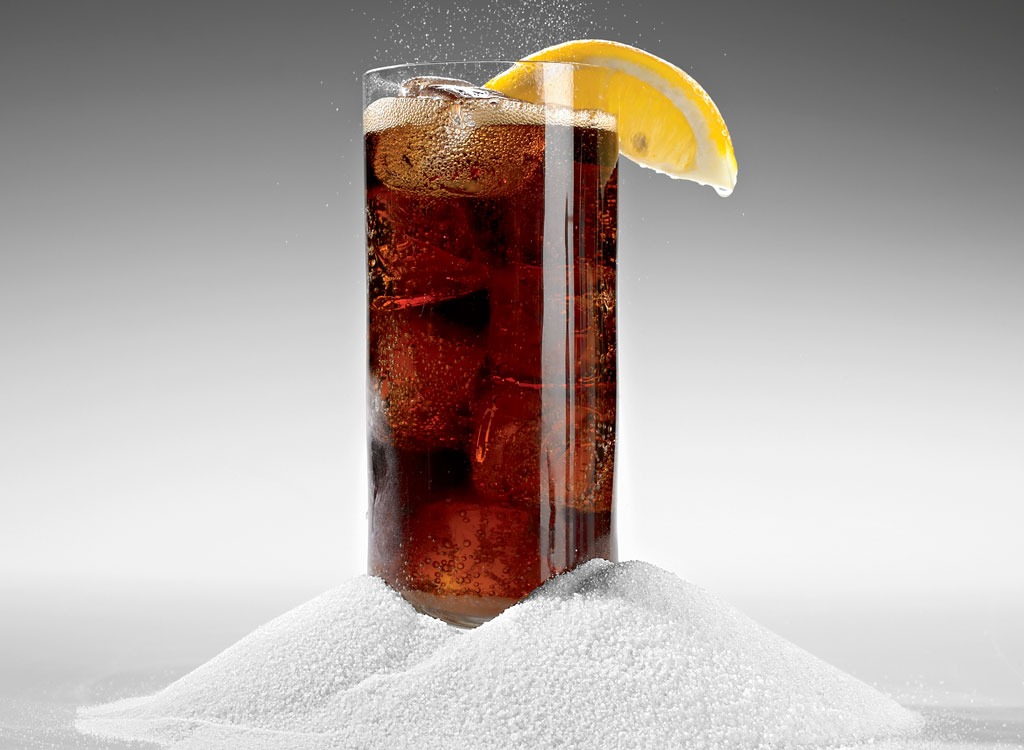
No wonder it's hard to stop at just one. It might be the fizz. It might be the taste. It might be something on the ingredient list. "The artificial sweeteners can cause a physical addiction and for some much more than others," Whittel says. "Caffeine might be a piece of that for some, but the sweet taste definitely keeps us coming back for more."
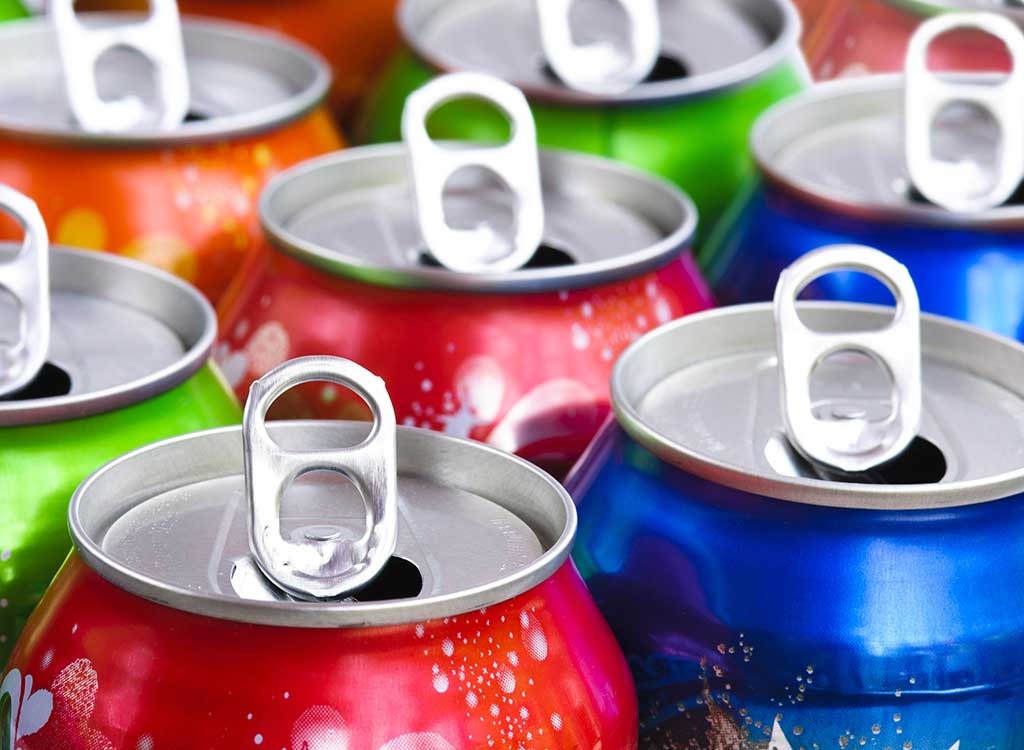
Even though you slash 140 calories per can or 230 calories per 20-ounce bottle doing diet instead of regular, diet soda has no redeeming wellness qualities (unlike these 37 best drinks for weight loss).
"I also think about what the soda is replacing, be that water, tea, or even coffee," says Bonnie Taub-Dix, RD, creator of BetterThanDieting.com and author of Read It Before You Eat It: Taking You From Label to Table. "A glass of water or sparkling water comes without artificial sweeteners, sodium, coloring, and flavoring. It's a much smarter, more hydrating option."
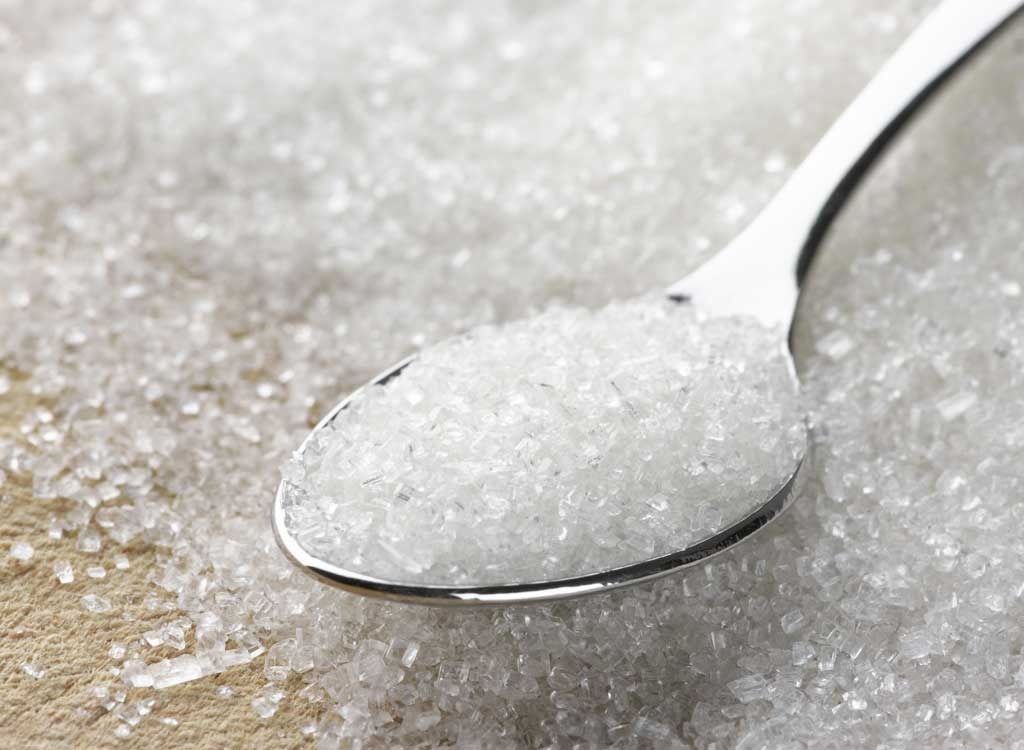
That Diet Dew could easily lead to double dessert. While the artificial sweeteners approved for use in soda have been deemed "generally recognized as safe" for adults by the U.S. Food and Drug administration, "artificially-sweetened diet soda is way sweeter than regular sugar," says Jenna A. Werner, RD, creator of Happy Strong Healthy. "When your body gets that much sweetness all at once, it may begin to crave even more sweet—which leads to consuming more and more sodas or unhealthy foods."
RELATED: The science-backed way to curb your sweet tooth in 14 days.
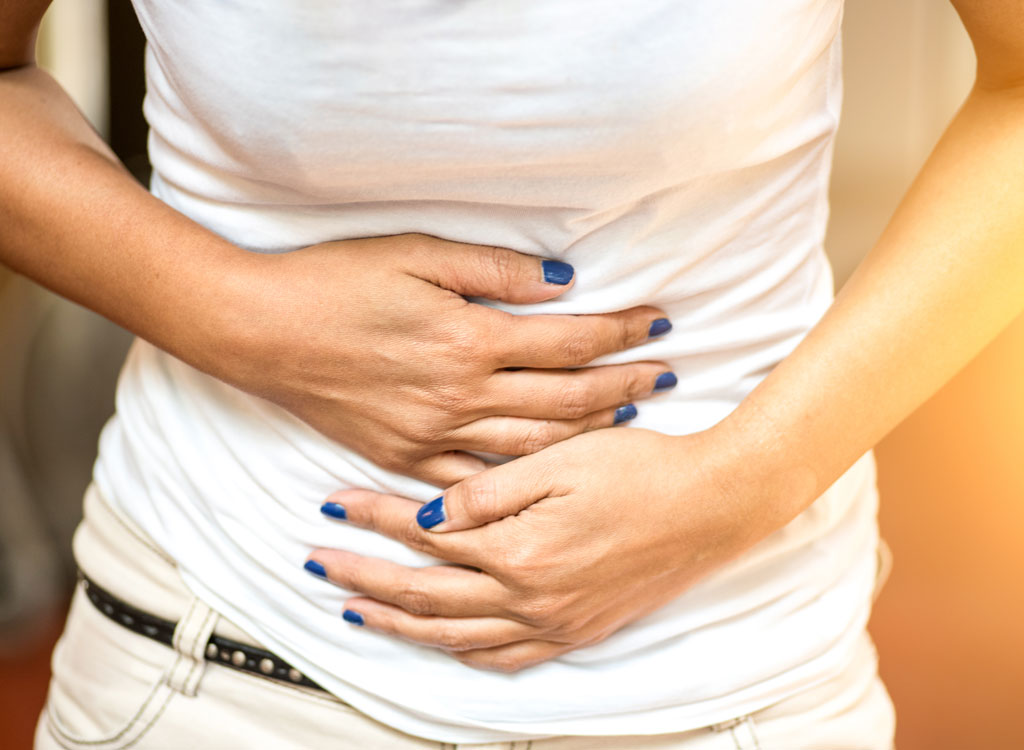
According to a recent mice study published in the journal Molecules, adding artificial sweeteners to your menu might impact the diversity and amount of good bacteria in your stomach.
"Artificial sweeteners can alter or kill beneficial bacteria in the gut," Whittel says. "We know that we need a healthy microbiome, not just for digestion, but for brain health, metabolism, weight management, the immune system; and research is showing connections with just about every organ and system in the body."
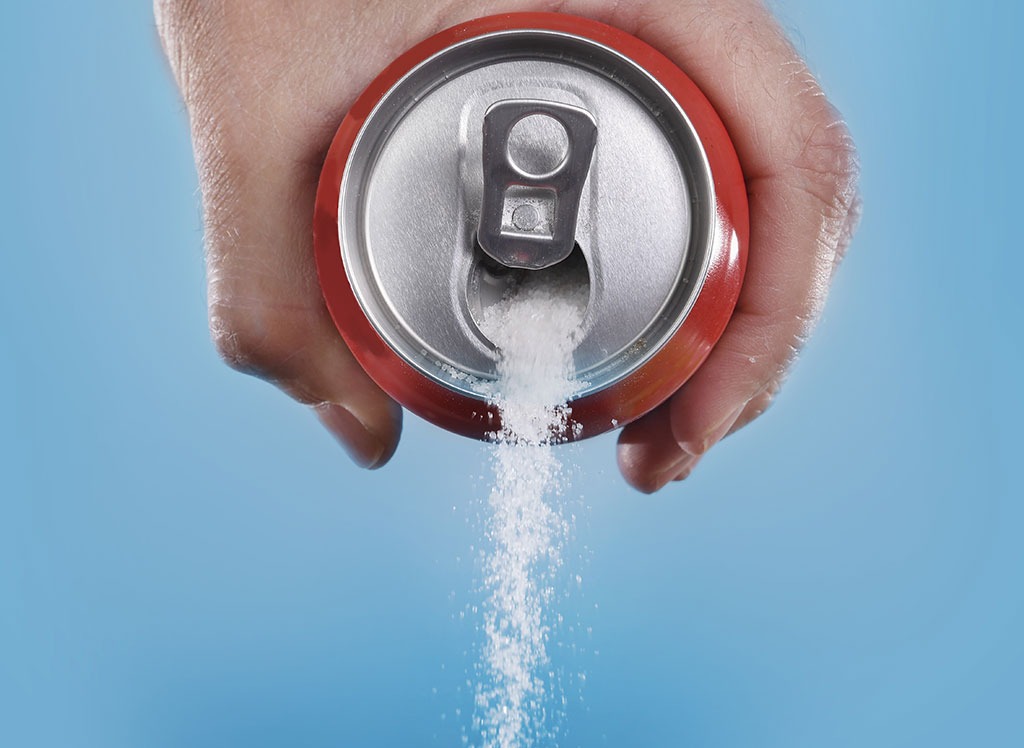
When sweet taste comes without the expected calories alongside, your brain and body are left guessing. Plus, your sweet tooth gets accustomed to sweet things the more and more you down soda, so instead of thinking an apple is sweet, you'll need sugar-coated apple-flavored fruit snacks to feel satisfied.
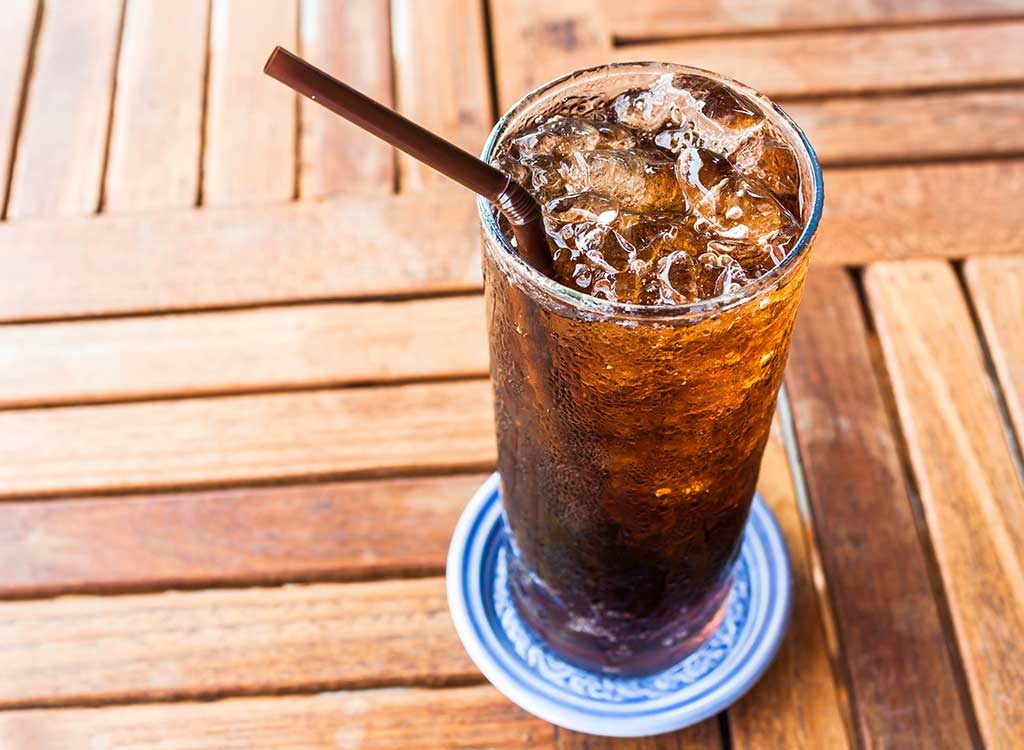
It's tough to prove cause and effect, but here's a staggering stat about the breakdown of people who drink diet soda from the American Journal of Public Health: 22 percent of obese adults are diet soda drinkers.
Whether you eat more calories because you give yourself permission to (aka the double cheeseburger + fries + diet soda effect) or because you're craving those extra sweets, the calorie deficit from skipping the real sugar might not be doing you as many favors as you initially think.
"The body interprets that sweetness as sugar coming in, and blood sugar levels are affected due to a release of insulin," Whittel says, which many times results in a snack attack.
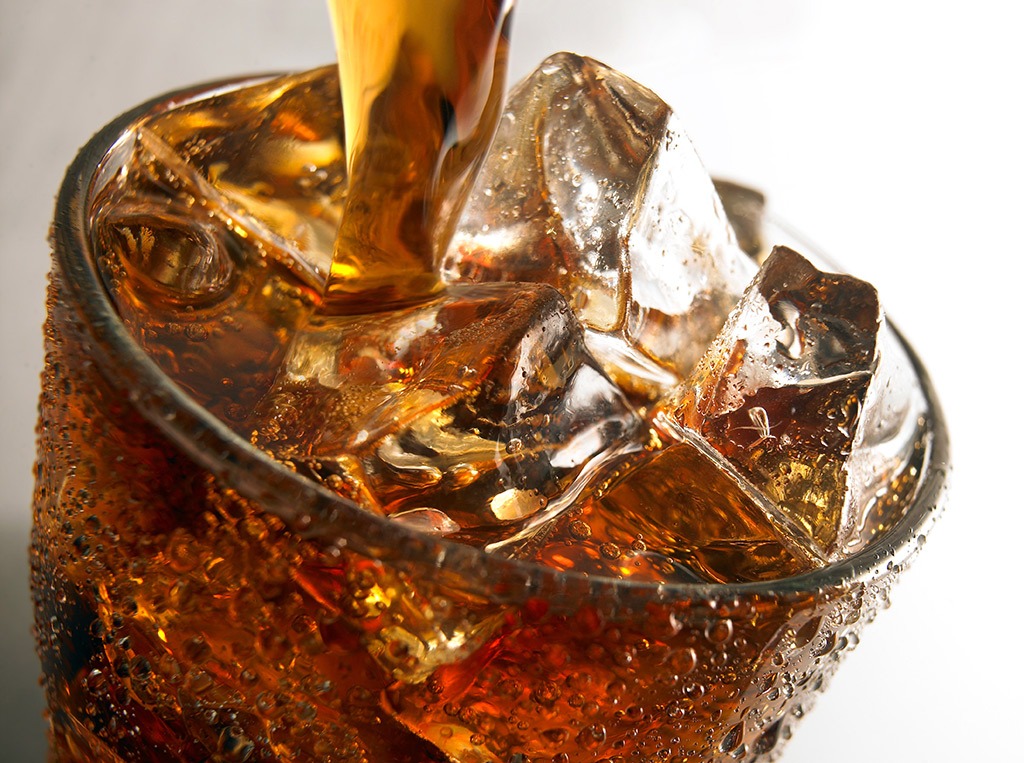
The weight difference between diet soda drinkers vs. abstainers may be more complex than eating more. "The chemicals that are used to sweeten diet soda are not natural substances to the body and aren't put to good use. Once inside the body, they can cause inflammation and place pressure on the body's detoxification system. As a result, they may increase the risk of metabolic disorders such as metabolic syndrome, insulin resistance, and diabetes," Whittel says.

Water makes up 60 percent of your body mass, so it's nothing to ignore, Taub-Dix says. "Every system in your body depends on water; the vehicle that carries nutrients to your cells and carries toxins away. There is no other nutrient that is so essential to health and yet contains absolutely no calories, protein, fat, carbs, sodium, sugar, additives, or preservatives."
Yet you rarely see someone double-fisting a bottle of water and a bottle of Diet Dr. Pepper. "Soda drinkers tend to choose soda over water, which can lead to potential dehydration. If you're drinking more soda than water, your body may not be getting the hydration it needs," Werner says.
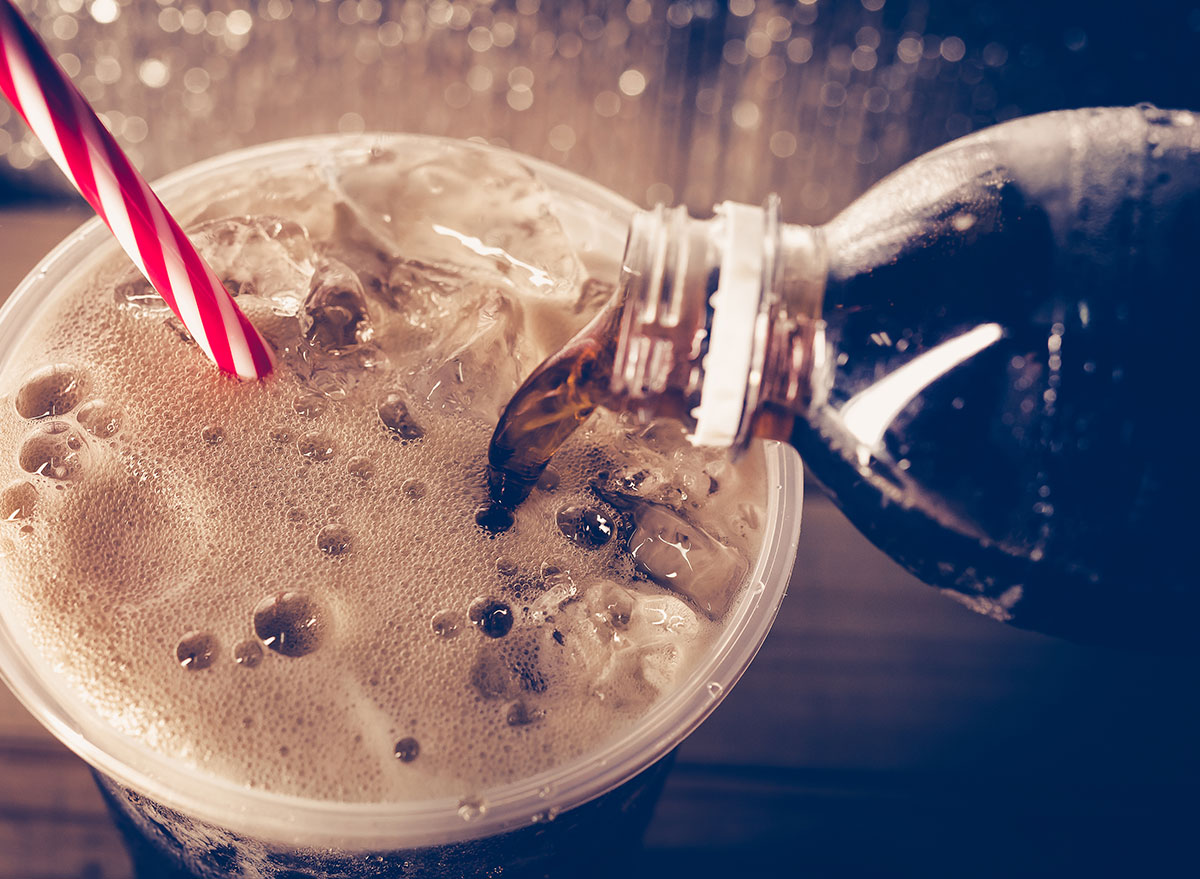
Find yourself reaching for can after can when you're bored? Or when you're feeling down? Ever notice it's difficult to concentrate after a few sips? There might be a reason. "Research shows a correlation between diet soda and depression, anxiety, and other mood disorders," Whittel says. "So if you're working to improve your mental health, steering clear from diet soda and artificial sweeteners may help."

In a surprising turn of events, an American Journal of Clinical Nutrition study found no link between drinking 100 percent fruit juice and type 2 diabetes, while other research has linked diet soda drinking with more diabetes diagnoses. "A recent study showed that women who drank one 12-ounce diet soda had a 33 percent increased risk of type 2 diabetes, and women who drank one 20-ounce soda had a 66 percent increased risk," Whittel says.

"Diet soda may save you from the calories of regular soda, but it's not the answer to a well-balanced diet if you want to look and feel your best," Taub-Dix says. "The bloat that soda brings, diet or otherwise, can make you feel 'heavy' and uncomfortable (even if you haven't consumed one calorie)."
It's not just a feeling, either, Whittel reinforces. "People who drink diet sodas don't typically lose weight when making the switch. In fact, they may even gain."
Further evidence from the Journal of the American Geriatric Society showed that added diet soda intake is associated with added inches around your waist.

Both regular and diet soft drinks chip away at tooth enamel in equal amounts, says a report in Operative Dentistry. Root beer appears to be the most chomper-friendly soda option, although drinking water is best (and best for your teeth), of course.
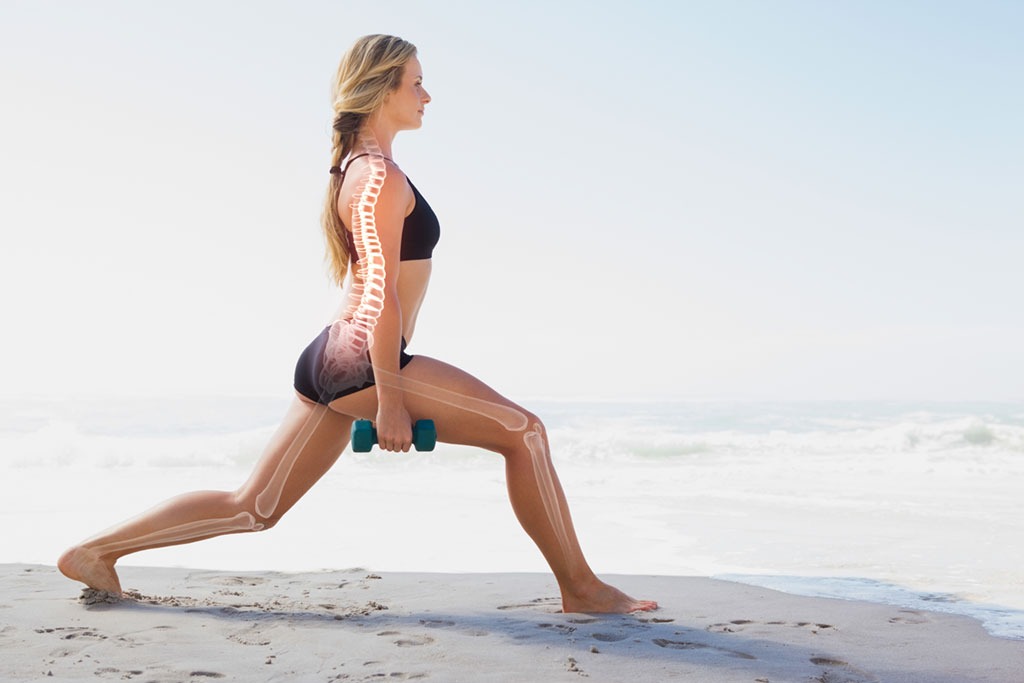
In similar news, but with opposing results, colas were the biggest bone-stealers in an American Journal of Clinical Nutrition study. Specifically, female hip bone density was directly impacted by cola—most likely because of its higher phosphoric acid content than over beverages.

Taub-Dix sites the caffeine in diet soda as the potential negative to your noggin, while a study in the journal Headache blames artificial sweeteners. It could be the dehydration, too. Regardless of the cause, if your head is pounding and you're a diet soda junkie, try swapping that can for a cup of H2O.
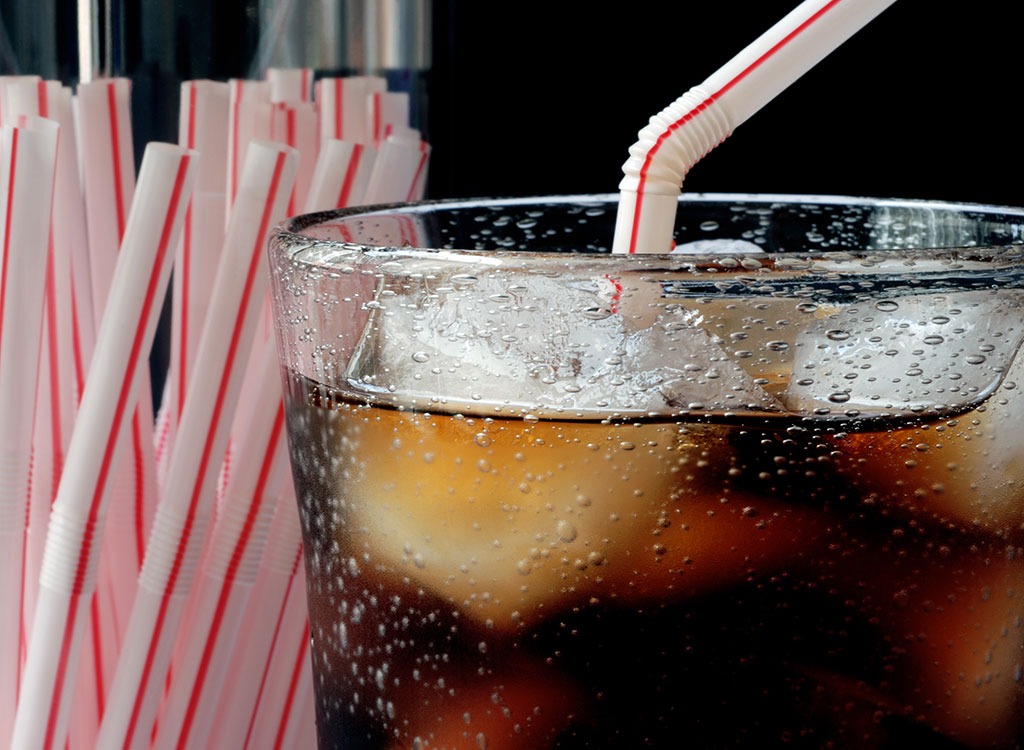
Even if you're not a pack-a-day diet soda drinker, quitting cold turkey can be a challenge. "Cutting back can be a great solution. Try replacing one soft drink per day with a seltzer or flavored water. If it's the bubbles you are after, a flavored seltzer may be a great option, or mix a little juice into a plain seltzer to get the bubbles and the sugar," Werner says.
You don't need to go sans soda all at once, either. "Any decrease in diet soda and artificial sweeteners is going to be good for your health," Whittel says. "Most people can expect to go through a withdrawal period when you feel worse before you feel better. But the good news is that you will feel better once that addiction is broken. Just be sure to put some nutrient-dense foods in its place so you don't feel deprived."
As your body gets more accustomed to real food and drinks instead of the artificial stuff, "the chances of you still craving that artificial sweetness will be greatly diminished," Whittel adds.
We're here to help you kick your habit to the curb. Check out these 15 delicious drinks that make it easier to quit soda.
Do Diet Sodas Affect Self Control
Source: https://www.eatthis.com/diet-soda-side-effects/
0 Response to "Do Diet Sodas Affect Self Control"
Post a Comment